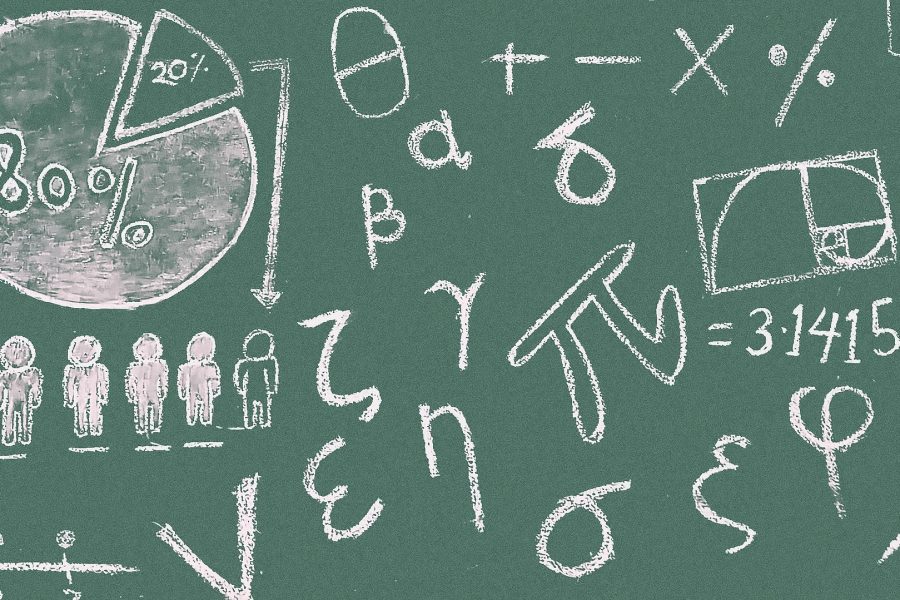While California’s proposed K-12 math curriculum framework has taken justifiable hits for its woke politicization of math instruction, it is also rife with subject-matter deficiencies that will result in students being ill-prepared for higher education and the workplace.
The second draft of the proposed math curriculum framework, which was released earlier this spring and which will be considered by the State Board of Education, is supposed to guide math instruction in California’s public schools.
Critics have slammed the draft’s objective of teaching math to “promote racial justice” plus its encouragement to teachers to promote “sociopolitical consciousness” among students.
Experts, however, have also criticized the framework’s curricular weaknesses.
A recent open letter signed by more than 400 distinguished math and science academics at California four-year colleges and universities lambasted key deficiencies in the proposed framework.
The framework promotes data science courses as substitutes for traditional core math courses such as Algebra II. This substitution, however, is highly problematic.
The professors’ letter says that data literacy involves things such as spreadsheet skills and very basic statistical ideas, which are valuable life skills, but which can be introduced in social studies courses and science labs.
“It is misleading, however,” warns the letter, “to promote data literacy and high-school level data science courses as a substitute for learning math content in preparation for college-level quantitative courses.”
“Algebra, statistics, geometry, trigonometry, and calculus as topics in the high school math curriculum are not mutually interchangeable.” [emphasis in the original]
“In other words,” say the professors, “students who take a data science course as an alternative to Algebra II in high school will be substantially underprepared for any STEM major in college, including data science, computer science, statistics, and engineering.” [emphasis in the original]
The result: “Such students will need remedial math classes in college before they can even begin such majors, putting them at a considerable disadvantage (for summer opportunities and the ability to earn such a degree in 4 years) compared to peers who learn such material in high school.”
“It is crucial,” the professors emphasize, “that parents, teachers, and policy makers be aware of this fact.”
Why is Algebra II so important in building students’ math understanding and knowledge base?
According to the professors’ letter: “Topics in Algebra II such as logarithms, exponentials, and trigonometry are not relics of the Sputnik era or mere luxuries for future Math and engineering majors. They are foundational across work in quantitative fields including data science, neuroscience, machine learning, statistics, computational biology, and computer graphics.”
The professors torch the claim that “mathematical topics related to data science are inherently more engaging or more equitable than other areas of high school math [as suggested in Chapter 5 of the California Math Framework].”
Rather, “to prepare more students for a STEM career” more students must “learn the core math content in high school.”
In addition to the warnings from the STEM professors, U.S. Rep. Young Kim (R-Fullerton) has spearheaded a congressional critique of the proposed framework.
In a just released letter, Kim and seven other California members of Congress excoriate the State Board of Education’s claim that “students wishing to take advanced math classes following their sophomore year can do so by taking Algebra I and Geometry at the same time.”
“It is beyond unrealistic,” say the Congress members, “to expect students to balance multiple math classes at the high school level simultaneously while also expecting them to handle a regular class load, extracurricular activities, and provide for their own stability and mental health.”
Instead, they say, “students should have the freedom to study in accelerated math courses when they choose to do so and have the option of not double-booking classes at a consequential moment in their educational process.”
Finally, Tom Loveless, former head of the Brookings Institution’s education center, says that the proposed framework “does not reflect current scholarship on how to serve students who struggle with mathematics.”
The framework, observes Loveless, does not cite a single major study on how to help struggling math students.
According to Loveless, “It appears that the framework’s ideological commitment to the principle that all students should be treated the same—same curriculum, same instruction—is the primary reason why the extensive literature on struggling students is ignored.” Equity trumps improving student performance.
The bottom line is that the proposed math framework is fatally flawed, both for its ideological bias and for its course and instructional deficiencies. For the sake of our children’s future, policymakers should go back to the drawing board and get it right.
Lance Izumi is senior director of the Center for Education at the Pacific Research Institute. He is the author of the book The Homeschool Boom: Pandemic, Policies, and Possibilities.


